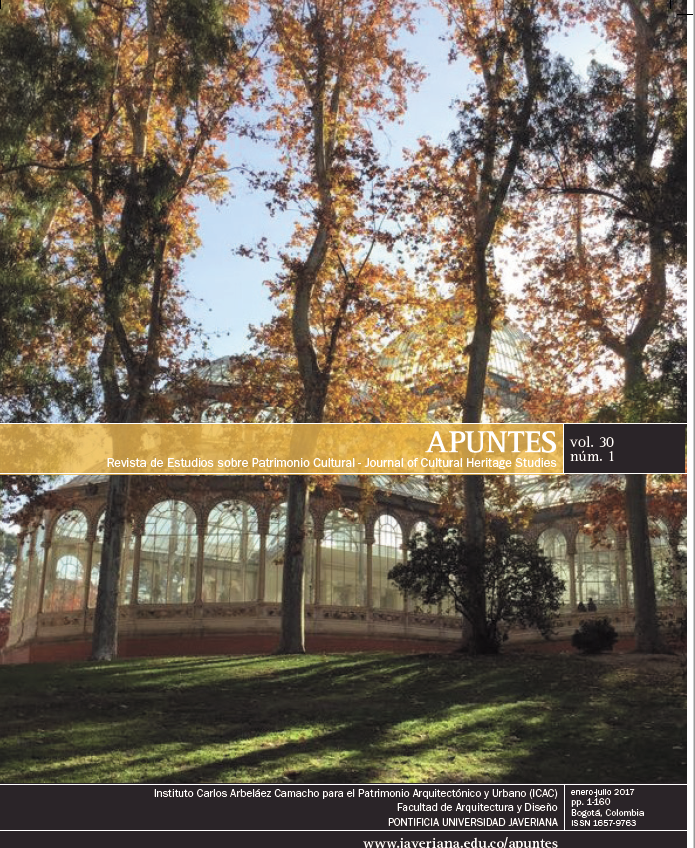Abstract
The idea of the railroad of Antioquia as the structuring system of the territory, and particularly, as a patrimonial category of ‘cultural itinerary,’ raises a reading that goes beyond a simple list of movable and immovable property of cultural interest scattered in a geography –that in the last decades have been subject to abandonment and obsolescence– with significant changes in the dynamics of settlement, multidimensional exchange, and permanence of the surrounding communities. A new scenario of creations and representations, built from memory and social imaginaries, has allowed revealing identity keys that in the category of cultural itinerary are constituted as established by Icomos (2008), in shared common values. This, therefore, leads to emerging management potential to set its value as a heritage resource from the perspective of human scale development. This work allows revealing those identity versions that have been constructed from the local and daily environment of the railway communities and that transcend the official discourse, extending the spectrum of valuation over to the intangible scenario of appropriations and meanings, in the construction of new stories, and therefore, of new roads towards the activation and participative management of the railway itinerary.
Apuntes is registered under a Creative Commons Attribution 4.0 International Public License. Thus, this work may be reproduced, distributed, and publicly shared in digital format, as long as the names of the authors and Pontificia Universidad Javeriana are acknowledged. Others are allowed to quote, adapt, transform, auto-archive, republish, and create based on this material, for any purpose (even commercial ones), provided the authorship is duly acknowledged, a link to the original work is provided, and it is specified if changes have been made. Pontificia Universidad Javeriana does not hold the rights of published works and the authors are solely responsible for the contents of their works; they keep the moral, intellectual, privacy, and publicity rights.
Approving the intervention of the work (review, copy-editing, translation, layout) and the following outreach, are granted through an use license and not through an assignment of rights. This means the journal and Pontificia Universidad Javeriana cannot be held responsible for any ethical malpractice by the authors. As a consequence of the protection granted by the use license, the journal is not required to publish recantations or modify information already published, unless the errata stems from the editorial management process. Publishing contents in this journal does not generate royalties for contributors.


